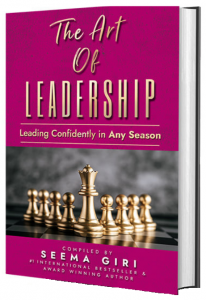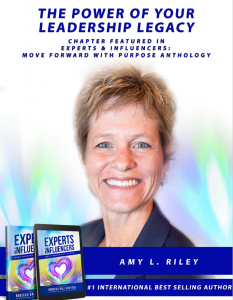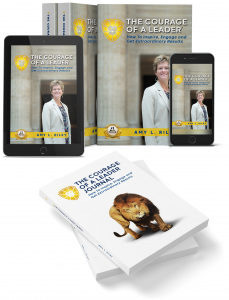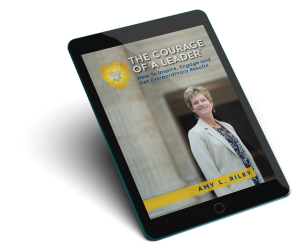Pia Lee is an expert in the leadership of teams. And work in our world gets done through teams. In this episode, Pia shares with us how teams can take ownership and accelerate their success. Whether you’re a team member or a team leader, you don’t want to miss this one!
About the Guest:
Pia Lee is the Co-founder and CEO of Squadify, Pia Lee’s experience managing teams and her expertise in leadership consultations pans over 30 years. Positively impacting people in teams and organizations around the world, Squadify codifies the key conditions for delivering success, whereby teams can assess, track and develop through a nexus of data and dialogue.
Prior to Squadify, Pia Lee held the position of CEO at LIW, a global leadership consultancy based in Sydney, for more than 10 years. Her leadership helped LIW expand its reach through a pioneering range of leadership consulting, leadership development, and coaching services.
Pia also has over 15 years of experience in coaching and consulting CEOs and executives in industries including finance, asset management, healthcare, technology, and professional services. An advocate for creating measurable and sustainable business impact for a broad range of global clients in both the private and public sectors, Pia has coached and consulted blue-chip clients including Cisco, Republic of Tanzania Government, Sanofi HealthCare, Macquarie Bank, Google, and Atlassian. She thrives when analyzing executive and team management solutions, cutting through challenges to leverage leadership capability at an individual, team, and organizational level.
Completing her Masters of Organizational Coaching at the University of Sydney, Pia is the joint author of ‘Keep Calm and Carry on Leading’ and is qualified across a number of psychometric tools and assessment frameworks.
A passionate thought-leader, Pia regularly speaks to large audiences on leadership at events including Learning Technologies Conference London 2020, Australia Social Housing Forum 2019, and Macquarie Perspective 2019. She began her career in early childhood education, before embarking on adult educational development and training.
Pia lives in northern NSW on an acreage with her partner and young family. She balances life with ducks, alpacas, and a lot of mowing and enjoys capturing life on camera.
https://au.linkedin.com/in/pia-lee-squadify-a2884113
https://www.squadify.net/
About the Host:
Amy L. Riley is an internationally renowned speaker, author, and consultant. She has over 2 decades of experience developing leaders at all levels. Her clients include Cisco Systems, Deloitte, and Barclays.
As a trusted leadership coach and consultant, Amy has worked with hundreds of leaders one-on-one, and thousands more as part of a group, to fully step into their leadership, create amazing teams and achieve extraordinary results.
Amy’s most popular keynote speeches are:
The Courage of a Leader: The Power of a Leadership Legacy
The Courage of a Leader: Create a Competitive Advantage with Sustainable, Results-Producing Cross-System Collaboration
The Courage of a Leader: Accelerate Trust with Your Team, Customers and Community
The Courage of a Leader: How to Build a Happy and Successful Hybrid Team
Her new book is a #1 international best-seller and is entitled, The Courage of a Leader: How to Inspire, Engage and Get Extraordinary Results.
https://www.linkedin.com/in/amyshoopriley/
Links mentioned in the episode
https://www.squadify.net/our-product
Call to action
Try a Squadify and accelerate success for your team: https://www.squadify.net/book-a-discovery-call
Think about the 3Cs: Clarity, Climate and Competence. Then ask yourself: What am I trying to achieve across each of the 3Cs? Then, where are the strengths and weaknesses across the 3Cs? What are your priorities?
Thanks for listening!
Thanks so much for listening to The Courage of a Leader podcast! If you got inspired and/or got valuable leadership techniques you can use from this episode and think that others could benefit from listening, please share using the social media buttons on this page. Do you have questions or feedback about this episode? Leave a comment in the section below!
Subscribe to the podcast
If you would like to get automatic updates of new The Courage of a Leader podcast episodes, you can subscribe to the podcast on Apple Podcasts or Stitcher. You can also subscribe in your favorite podcast app.
Leave us an Apple Podcasts review
Ratings and reviews from our listeners are extremely valuable to us and greatly appreciated. They help our podcast rank higher on Apple Podcasts, which helps us ignite The Courage of a Leader in more leaders! Please take a minute and leave an honest review on Apple Podcasts.
Teaser for next episode
Tune in in 2 weeks to hear from Gloria Everett, President and CEO of The Mutual RRG, about what they’ve learned in their cutting-edge journey to virtual work.
Transcript
Pia Lee is an expert in the leadership of teams. And how do we get work done? It's through teams. Pia shares with us how teams can take ownership and accelerate their success. Whether you are a team member or a team leader, you don't want to miss this one. I'm glad you're here to listen in.
Amy Riley:Welcome to the Courage of a Leader podcast. This is where you hear real life stories of top leaders achieving extraordinary results. And you get practical advice and techniques, you can immediately apply for your own success. This is where you will get inspired. And take bold, courageous action. I'm so glad you can join us. I'm your host, Amy Riley. Now, are you ready to step into the full power of your leadership and achieve the results you care about most? Let's ignite the courage of a leader.
Amy Riley:Pia, your company, your work focuses on positively impacting teams. Tell us why the focus on teams?
Pia Lee:Well, I probably have to give back a little bit of time there. So my previous career was running a global leadership consultancy. And we had the fortune of of working with multinationals around the world. And that was for nearly 20 years. And then we started asking ourselves some questions at the end of that period, which was how a team served. We thought about it and looked at three areas, organization, team and individual and individual gets a lot of love care and attention. So there are lots of tools approaches. And we love that. And that is that's really valuable, then there's been a huge uptick in engagement, cultural surveys. And then what we tend to do at a team level is aggregate that data. So we're taking what people are talking about the organization, but we aggregate it to a team. We went, gosh, the team is the key unit that actually gets the job done. Yes, what's happening? How are they being served. And so that then took us on a journey to start to build Spotify, which is a platform which supports the growth and development and performance of teams. And so what's the premise of that the work that we did, working with all those organizations created a framework. I know you're familiar with this, we both which I would come across clients 20 years later, and they would still remember the three C's. Yeah, and I'd go okay, right, I think there's something in this. So because they could remember it. So, so that what's this, this sort of concept of leadership is, the leader is here to create the conditions of success for themselves and their team. So what we did was break this down into something that was so easy to understand. It was it was easy to repeat, remind ourselves, and action. So these three conditions are clarity, and competence all begin with the same letter. That's quite handy. Because if you really do actually go in alphabetical order, which also helps wasn't intentional. So what do we mean by that a leaders role is to create with the team, why they're doing the clarity of why they're doing something, what they're doing, how they're doing it and who's going to do it, then the climate is the environment, both the systems and processes, but also that cultural, that psychological safety that enables the team to work together, then, and then the competence, which is knowledge and skills, behaviors and attitude. So those three C's those three conditions are what a what a team leader, and a manager needs to be thinking about more holistically, we sometimes narrow down just on the task, and we don't realize the importance of the teamwork to deliver that task. This is more holistic, so it widens our thinking around that And this is really interesting because over the, you know, the pandemic, I think has really accelerated the need for teamwork. But some of our understanding of teamwork has got lost in probably the last 20 or so years, a lot of books written about it in the 90s, it was a big thing. No, there's no I in team and all that. And it got sort of became a bit all and then the individual, and the organization rose in prominence, and the teams got lost or taken for granted. So we've got a manager, a leader, and this key unit, they think they're a team. But what our observation is, quite often they're groups of individuals who are might report but don't have that sense of teamwork, that dynamics to maximize their performance, or, most importantly, the ability to have the conversation. So what we were seeing in whoever you're working with these organizations, human beings were craving, connection and engagement. But we're being driven to have a very tactical, business focused, task focused conversation. Yes. Can you see that it's like a split want this, but this is happening. And so therefore, you're almost conditioned to think, well, the organization doesn't want that. That's not what this is about. And then their behavior can be replicated with the team. That's quite a tricky situation, then when particularly walk are in times that are as volatile as now. Don't have, we're seeking that cohesion, we're seeking that connection, we're seeking that collaboration, we're in a very fast paced world, the demands will always keep upping, we need to lean in on our humanity. And we need to be able to build our skills of managing those dynamics more effectively in the unit of the 810 12 people that we may be working with.
Amy Riley:Yeah, this is so great. Pa, you've said so many insightful things already. And I know this isn't the first time you and I are having some of these conversations. But when you say that, it seems so clear to me, yes, all of these surveys in this study and this attention that's going on in an organization, it's either on the individual, Hey, are you and your needs getting met? Are you engaged, or it's at the overall organizational culture level? And we're not looking at the teams of the people who could come together and create the extraordinary results. Right? Yeah. And I love with your work and the data that's coming out of squatter fie. You're having the answers to how do we connect and get that collaboration that team members are craving? And yeah, come up come together and team in effective ways.
Pia Lee:process. You repeat it every:Amy Riley:completely aware of raising the awareness of the impact that they have on one another and setting them up to co create. What
Pia Lee:I was gonna say every team is different. So that was the other part. You can't you can't do a sheet dip approach. But so you need to create an architecture that enables those teams to have the conversation.
Amy Riley:Great. Each team is different. We are talking today to PA li PA is the co founder and CEO of squatter fi pili is experienced managing teams and her expertise and leadership consultation spans over 30 years. positively impacting people in teams. squatter fie codifies the key conditions for delivering success. already heard about that, whereby teams can assess track and develop through a nexus of data and dialogue. Prior to Spotify pili held the position of CEO at li W. A global leadership consultancy based in Sydney. She held that position for more than 10 years. Her leadership helped li W expand its reach through a pioneering range of leadership consulting, leadership development and coaching services. An advocate for creating measurable and sustainable business impact for a broad range of global clients in both the private and public sectors. Pa has coached and consulted blue chip clients, including Cisco, Republic of Tanzania, Tanzania government, Sanofi healthcare, Macquarie Bank, Google, and Atlassian, completing her Master's of organizational coaching at the University of Sydney. Pa is the joint author of keep calm and carry on leading and is qualified across a number of psychometric tools and assessment frameworks. She's also the co host of the podcast we not ni, which of course is exploring how we get stuff done in groups and teams. Pa lives in northern New South Wales on an acreage with her partner and young family. She balanced his life with a duck's alpacas. The horses are coming. I have a lot of lawn mowing, and enjoys capturing life on camera. It's always interesting. I always learned something talking with UPS. So thanks for being here today.
Pia Lee:Oh, thank you. Amy's absolute pleasure, absolute pleasure. And I
Amy Riley:love how you've been sharing with us that there are these three C's, these conditions for success, that leaders and teams are focusing on creating for themselves. So there are some common three C's that we can look at. Yet every team is different. And they're focusing on what's more important to them. based on their preferences, the work they're doing all kinds of variables. Yeah,
Pia Lee:that's correct. I mean, it's common language is critical leadership, because this gives a gives the cut throught cut through the common understanding and enables that alignment to execution because people are are aware of what it is that they're that they need to be focusing on. But every team is different, and their context is different and teams develop People come and go, the leader may come and go. But how do you create that common thread, and really, over these 20 odd years of where we, we have worked with these large organizations, and created this framework of these three C's, we got to the point where we're going, this thing really, really works. And our clients are telling us, it really, really works. And we're winning lots of impact awards. So we actually went to London School of Economics and said, Okay, can you verify this, let's do the proper research around and tell us whether, you know, we've got a bias towards these three C's, or whether they actually, we've got something. Now it's not to say, I, it's not to say this is it, what we've tried to do is go, does this capture the key elements, and help you to remember, and to be proactive in your leadership? And in your teamwork? Because if you're, if you're trying to remember seven things, it's unlikely you're going which one was it again, you want it to be so it's instinctive, then you can get to the business of actually connecting with the people and and actually building, building the teamwork if you're not trying to remember member stuff. So LSE came back with a couple of interesting things. One was that it is clarity, that that that whole element of being clear about why you're doing what you're doing, how and who, and climate that drives performance, not competence. Now, this is a little bit this is a bit of a, a bomb in the room, because we are fixated on hiring rockstars we somehow don't get the Rockstar team, and this and the other C's. Tell us why. So the Rockstar team is formed around the clarity, peace, and around building an effective climate. Most people are pretty smart, and are pretty motivated. But those two factors? Are those two conditions, clarity and climate can can undermine their performance and undermine the overall collective performance. How do you bring seven eight people together and their collective output is more than the sum of their parts? And that's the distinction between a team and a group
Amy Riley:and a group. Yeah.
Pia Lee:Yeah, so. So that's yeah. And LSE also talked about how having a shared mental model, which goes back to that element of having some of the language, having a shared mental model about the direction, but the way that we do things, rapidly increases performance, because you're not putting any energy into managing the dynamics negatively within your own team, you're putting that to positive intent. If you've got that shared, this is how we work. This is what we do. You know, and this enables us to perform, if it's democratically decided amongst the team, this is how we're going to do it. And there's an element of iteration. You've got big buy in. Yeah. And and that's where I think we'll see, you know, in this, call it what you will the great resignation, talent shortage, but what but this will tie people in this will build greater engagement.
Amy Riley:And that's, that can represent a different shift in leadership approach for many, instead of being the leader that says, here's what we're about, here's how we do it. Here's how we drive forward, you know, here's how we're going to operate as a team. Instead, being the leader that focuses on how do I create the environment and tee up the conversation, so that the team can say, how we're going to collaborate, and create and move towards our goals.
Pia Lee:And that's not it's not an all or all of one or all of the other. It's, you got you pitched on that really good word cocreate. If the team leader, the if the if the manager or the leader is thinking about, okay, what are we trying to achieve? And why here? And Does everybody know what that is? Then how do I create the right conditions for everyone to achieve that, and that could be
Amy Riley:because we need that we need some of that clarity from our team leader, right? We need a team leader start driving with the clarity. Yeah,
Pia Lee:so the biggest surprise I've had over the last two years Is that actually many, most teams do not have a collective goal, they have a sum of the individual KPIs. So everybody has their own measure and objective. And then they come together to sort of create an output for the team. But that isn't necessarily clarified. So changing that we're always going to have individual objectives. That's kind of like how the system works. But the system isn't setting up teamwork, the system is setting up individuals to be accountable for that, and that's that, that so? Okay, so how do we get round that? So teams we've worked with have gone? Okay, let's create some of our own goals on top of that. So what are we working towards? How are we going to measure ourselves? Yeah, it's actually really simple doesn't have doesn't have to be complicated. And that's, that's that has really bolstered performance significantly. We see that clarity is the area that most teams go to once they've done a squad of FAI, they actually then realize, actually, we're not quite as clear, we're clear ish, we're very clear on the direction, less clear on the plan, and even less clear on our success metrics, as a team, not as individuals. So then when they put focus on that and getting interested on developing that, then they find immediately they get an uplift. And then it can allow them to look at the next phase, which is like, what are our Dynamics? Like? How do we speak up? How do we resolve tension, we spent a lot of time devising the questions so that they could be applicable across all industry sets, and all levels. You know, you and I've worked on a lot of psychometrics here that you sort of need a bit of a PhD to work out exactly what the words are, and what they're all very intimate color coding. So you're like, so you have to get a very expensive consultant in to help you which, you know, is nice in some ways. But that's not democratizing the value of teamwork. And actually, you've got to disrupt that. And it is not as complicated. It's not easy. That's not That's not easy. Because it's got a human factor. Yeah. But we're passionate, it's qualified to go, how do we take this knowledge? And how do we get it to many, to many teams, so that they can access it themselves? Develop the dialog, and all ships rise? Yeah, I don't know about you. But I'm sort of getting to that stage in my life of realizing how important this connection is, and what the value is that we're going to give for the next generation. If we miss this, we miss the art of communicating. And if we don't communicate, like in any relationship, we see this a lot. Then the friction will happen. And thing and performance will drop and problems will emerge. Yeah, no, I feel like it's it's a it's a, it's a call, it's a calling? Yes. Yeah. As well, as well as a real business need. Because I think it's it's just, it's just raising it and getting it it's not that complicated. And our clients that we've got 20,000 users, they're going great. This is so simple. This has made such a fundamental difference. We can put it into their hands, then they can scale through something cool, which was General McChrystal utilized in his book Team of Teams seeing their organization. That's it. That's it. So right behind you. They and it's just phenomenal seeing your organization as a team of teams interconnected, aligned by purpose, mission values, but autonomous and empowered teams. And that's a that's, that's it. That's a much more empowering, and a malt as I'm using the wrong words here, but it multiplies the capacity across the organization. phenomenally.
Amy Riley:Yes, yes. I always see and feel your passion around the PA and in any Yes. Right. It's how do we give folks what they're craving inside of their teams? And it's clear when you look at it, it's it's an under served our teams inside of organizations and when you think about what is your experience of your work, day to day It's your experience with your leader and your team.
Pia Lee:Absolutely, absolutely we are naturally I had an experience the other day, which help really helped me to go, this is the natural way that people want to behave. So we had floods here up in northern New South Wales and lots of people, it was phenomenal. And lots of people lost their homes and stuff. And we, we had a fair amount of damage in our local little town. That town on Facebook said, we're going to have a wreck. They didn't call it this, but it was a retro retrospective, a review, in Agile terms, a review. Okay, how did our community respond to the floods? What went well, what didn't go so well, what. And I was going like, This is amazing. And I sat with 70 people from age 19, to 80 in the community, and they really objectively reviewed what they done, came up with innovative ideas for next time. So people naturally come together, the way that individuals helped one another in the face of adversity. And Mother Nature was quite extraordinary. It's in our DNA. But organizations by relentlessly focusing on individual KPIs pull people apart. And then we don't get, we don't maximize that team unit, we don't maximize the output. Now, it's not to say that people shouldn't be accountable with their KPIs. But we should be talking more about the team collective. And have you bring those KPIs together, you produce more? Yes, the output is more.
Amy Riley:Yes. And having individuals think about how do I impact the team? How do I impact my colleagues? Day to day? Correct?
Pia Lee:Correct? And how are we talking about it? You know, are we all avoiding issues and not doing it? And it's all that sort of passive? going on behind the scenes? Or do we start building the muscle, to have good conversations about it constructive and work with it? And like in any relationship, marriage, friendships, the whole lot? How do we then just kind of get move on and, and work with it? And I think that's really powerful. And, you know, the engagement surveys have become a massive thing of the last decade. And, and in the US alone, a billion dollars are spent on engagement surveys. And yet, only 22% of those people that bought it in organizations are happy with the results that they're getting. And I don't mean, the results they're seeing, but what it's doing for them. Oh, process. Yeah. And, and for the first time, and that's probably, I think it was probably something to do with with the pandemic engagement has now dropped to 20% 80% of people are partially disengaged or actively disengaged. That's a problem. You're spending hours at work. And it doesn't matter where you work from. It's how you work. And how you work can really be impacted through the team.
Amy Riley:Yes, yes. And empowering everybody to get involved and take some ownership and some responsibility and what is our experience like, day to day? You think about you mentioned families, PA, you know, when you think about like, how is my relationship with my family? How's my relationship with my extended family going? Well, me, I know that I need to reach out to my cousins, right? When they're, when they're posting about their kids on Facebook, I need to make a comment, right? This is my responsibility, to be involved, to be connected and to create a feeling of love and connection and family. It's not like we all look to grandma or grandpa to have all of that. But it's funny how sometimes in the work world, we're like, our leaders supposed to fix this for us. Yep. And I love that a process like this is we are putting like, not like heavy, like ownership on people. But let's get involved. And let's talk about what really works for us individually and collectively.
Pia Lee:Absolutely. I know you've hit a really good point there of a dynamic that we've discovered inside teams, which is the the manager the leader feels, they have to coordinate everything. So they become the hub and spoke everybody communicates into them and back out, they communicate to everyone else. And that is actually in a number of debriefs that has come up. And what the team has decided to do is this is quite, it's very cheap, this, they have one to ones with each other about what their, their objectives are, and how they can support one another. And that's all they have to do. In the next three months, you're gonna have one to ones you've got to understand. And that that is a huge accelerator, because that frees up the time for the manager to be able to okay, how do I get those other conditions in place? How do I how do I support that team, but they are communicating with another to work out, how's it going to be more efficient than when we're in team meetings, we're not defending our number defending our product line defending our function, we're actually then understanding each other as part of the business and what we might need to do. So that dynamic and resolving tension, which that there's going to be healthy tension in the system, that's normal. Yeah. And it's about working that out. And, and, yeah, and having the conversation around that. But that Hub and Spoke exists, and the team leader feels or the leader feels under so much pressure, to be able to do everything. And, and they're being put pitched into a hybrid, often a fire hybrid way of working with hasn't been a rule book written. Right. So we have to do this differently. We have to look at the way that we operate differently. And it's not passing all the responsibility on to the team, but it is CO creating together. Yeah, it's giving, it's giving them the capacity with the leader, to be able to discuss, think about things. And it's like with your kids, isn't it, you know, if you tell them what to do, but actually, if you have an adult conversation with your teenagers, sometimes you're surprised. Yeah, everyone steps up, it gives us space to be able to step up. And that's what happens within a team.
Amy Riley:Yes. So peope, we've got a leader listening, who's saying, okay, all right, I get this. Now, teams have been underserved. I want to focus on creating the conditions for my team to succeed. Where Where do they start? Where do they look first?
Pia Lee:Well, they could certainly, I could do a quick plug for us, they can definitely come to spotify.net and have a look around there. And very welcome to to try a Spotify for themselves. I think that probably what I would first say is think about these three conditions, clarity, climate and competence. And ask yourself three questions. What am I actually trying to achieve across each of those, those areas? So what does my clarity what am what is the good team goal? What is the ultimate environment that I'd like to have to enable that climate? And what do I need in terms of competence? Then do a little sense check and go thinking about my team? Where do I think the strengths and weaknesses are against each of those three C's? And then where would that then tell me where the priority is? So it's that you're setting up, this is the goal against those three C's, this is the current situation, these are the what I think of the priorities. And that should very first qualified that's like a mental Spotify, then when you want to get down into more granular detail, come into a Spotify with this, because then that's gonna give you incredibly rich data for you and your team to be able to input, discuss, learn and track over a period of a year. And being able to really build that teaming muscle together to be able to really manage and maximize performance in whatever the circumstances are that are thrown at you. Now.
Amy Riley:I love it, Pa and I love the simplicity, clarity, climate competence, in alphabetical order, right? Because we we do want to start with the clarity. Where are we going? How are we going to get there? And given that, yeah, what's the climate that we want? What's the competence that we want? Yeah, it's not some mystical, hard to follow. formula here.
Pia Lee:No, and I think that sometimes we get skeptical because we think well, it's not complex enough. Leadership is an incredibly complex job. Yeah. So and, and we're not trying to boil the ocean into making something simplistic here. But we have tried and tested this approach for 20 years. And we've put it through its academic rigor. It has behavioral psychology that supports it. And it moves the needle. So you can you can, you can either get on board and make life a little simpler for yourself, or we can contest it. But I think that that what we've found is it provides the language and the mental mindset and the framework for a leader and their team to create success.
Amy Riley:What am I gonna say? It's simple, not easy. Correct? Right? And, and you don't want a team to get together and try to move the needle on 27,000 things at the same time anyways, you're not setting yourself up for success. And like you've said, the times that you've seen groups do their first squad are fine. It's like, okay, we've got the Hub and Spoke thing going on. Now. We're gonna have one on ones. That's what we focus on for the next quarter.
Pia Lee:Yep. I had one group in Asia Pacific that realized that a lot of their social fabric was created at lunchtime. And because of the pandemic, they were not, they didn't have a shared kitchen. Yeah. And they had no time to do the social interactions, which were like the oil in their own engine. Yeah, so they didn't have it. So that to things were starting to get a little bit squeaky because they weren't having that it sounds really simple. But that's a fundamental cultural importance. But that part of the world to spend time eating together is a way that you build relationships. So they were all on Zoom. And they said, Well, we're going to have to have zoom lunches, we're just going to have to,
Amy Riley:I was wondering if that was where that
Pia Lee:allows it. And then that became the way that they did it. They could eat and not, there was no agenda about work. It was just that's just hang out.
Amy Riley:It was lunchtime. Yeah. Yeah. So there's their oil back,
Pia Lee:they got the oil back, things started running deaf because you know, things would pop up, they would start talking, they will get to know each other they would, you know, bring their dog in, they would, you know, they would it was all of the human connection that is really important that enabled them then to put that into the dynamics of how they could perform together.
Amy Riley:Love it. Here. Thank you for your time today. You said so many great things. Let's focus on teams, and leaders providing the clarity for your team and creating the conditions for your team to succeed and to co create. Thank you so much for being with us today.
Pia Lee:Thank you, me. It's been a wonderful pleasure.


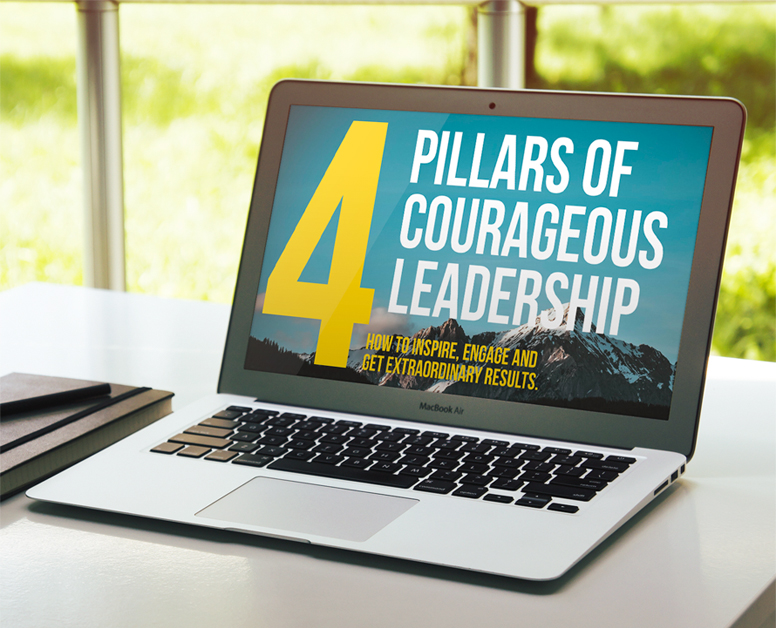 A Summary of The Courage of a Leader® 4 Pillars
A Summary of The Courage of a Leader® 4 Pillars